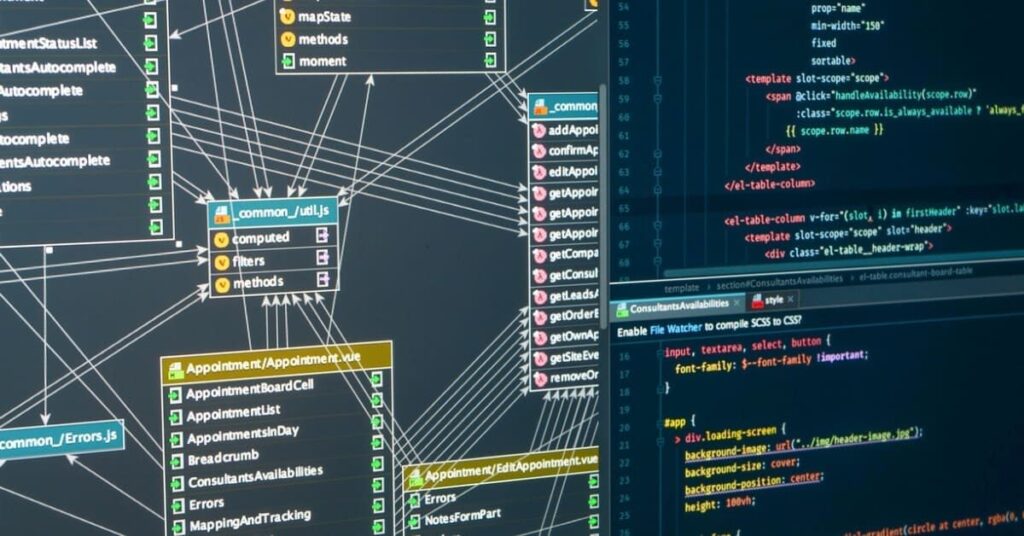In the dynamic world of software engineering, back-end development plays a crucial role in creating robust, scalable, and efficient applications. While front-end development focuses on the user interface, back-end development is the engine that powers the entire system, ensuring that everything runs smoothly behind the scenes. Mastering the essential skills for back-end development can set you apart in a competitive job market and open up a world of opportunities in full-stack development and beyond.

Understanding the Role of a Back-End Developer
Back-end developers are responsible for the server-side of web applications. They manage databases, server logic, and integration with front-end components. Their work is essential for maintaining the functionality, security, and performance of applications. Unlike front-end development, which deals with the visual aspects of a website, back-end development requires a deep understanding of server environments, programming languages, and frameworks that support the application’s infrastructure.
Key Skills for Back-End Development
- Proficiency in Programming Languages: To excel in back-end development, you must be proficient in languages such as Python, Java, Ruby, or PHP. These languages are widely used for creating server-side logic. Python, for instance, is known for its simplicity and versatility, making it an excellent choice for both beginners and experienced developers. Java, on the other hand, is a robust language favored for large-scale enterprise applications. Mastering one or more of these languages through dedicated programming lessons or coding workshops is crucial for any aspiring back-end developer.
- Understanding of Data Structures and Algorithms: Efficient back-end development requires a strong grasp of data structures and algorithms. These concepts are the foundation of problem-solving in software engineering. Data structures, such as arrays, linked lists, and trees, help organize and manage data effectively. Algorithms, which are step-by-step procedures for solving problems, are essential for optimizing the performance of applications. An algorithms course can provide the theoretical knowledge and practical experience needed to implement these concepts in real-world projects.
- Database Management: Back-end developers must be skilled in managing databases, as they are the backbone of any application. Knowledge of SQL (Structured Query Language) and NoSQL databases like MongoDB is essential. SQL databases are ideal for structured data and complex queries, while NoSQL databases offer flexibility and scalability for unstructured data. Understanding how to design, query, and optimize databases is a critical skill that will set you apart in the field of back-end development.
- API Development and Integration: Application Programming Interfaces (APIs) are essential for enabling communication between different software components. As a back-end developer, you must be proficient in creating and integrating APIs. RESTful APIs, which are based on the principles of Representational State Transfer (REST), are widely used for web services. Understanding how to design, develop, and secure APIs is crucial for ensuring that your application can interact seamlessly with other systems and services.
- Security Best Practices: Security is a top priority in back-end development. Protecting sensitive data and preventing unauthorized access is essential for maintaining user trust and compliance with regulations. Familiarity with security best practices, such as encryption, authentication, and authorization, is vital. Implementing these practices in your coding projects will demonstrate your commitment to building secure and reliable applications.
How to Develop and Enhance Your Back-End Skills
- Engage in Coding Exercises: Regular practice is essential for mastering back-end development. Engage in coding exercises that challenge you to apply your knowledge of programming languages, data structures, and algorithms. Platforms like LeetCode and HackerRank offer a wide range of problems that can help you refine your skills and prepare for technical interviews.
- Work on Real-World Programming Projects: The best way to learn back-end development is by working on real-world programming projects. These projects give you the opportunity to apply your skills in a practical setting, from designing databases to developing APIs. Contributing to open-source projects or building your own applications are excellent ways to gain hands-on experience and showcase your abilities to potential employers.
- Attend Coding Workshops and Online Coding Tutorials: Coding workshops and online coding tutorials are valuable resources for learning new technologies and techniques. These educational tools provide structured learning paths that cover essential topics in back-end development, such as database management, API integration, and security. Additionally, they offer opportunities to interact with instructors and peers, which can enhance your learning experience.
- Explore Full-Stack Development: While specializing in back-end development is valuable, having knowledge of front-end development can make you a more versatile developer. Full-stack development involves working on both the front-end and back-end of an application, giving you a holistic understanding of the entire development process. This versatility can make you more attractive to employers who value developers with a wide range of skills.
- Participate in Coding Challenges: Coding challenges are a great way to test and improve your skills. These challenges often simulate real-world problems that require a combination of back-end and front-end knowledge. Participating in coding challenges not only sharpens your technical skills but also demonstrates your problem-solving abilities to potential employers.
The Importance of Continuous Learning
The field of back-end development is constantly evolving, with new tools, frameworks, and best practices emerging regularly. To stay ahead, it’s important to commit to continuous learning. Enroll in advanced courses, attend industry conferences, and stay updated with the latest trends in software engineering. By doing so, you’ll ensure that your skills remain relevant and that you continue to grow as a developer.

Mastering back-end development requires a combination of technical skills, practical experience, and a commitment to continuous learning. By focusing on key areas such as programming languages, data structures, database management, API development, and security, you can set yourself apart in the competitive world of software engineering. Engaging in coding exercises, working on real-world programming projects, and participating in coding challenges will further enhance your skills and prepare you for a successful career in back-end development. Embrace the journey of learning and development, and you’ll find yourself well-equipped to tackle the challenges and opportunities that come your way.




